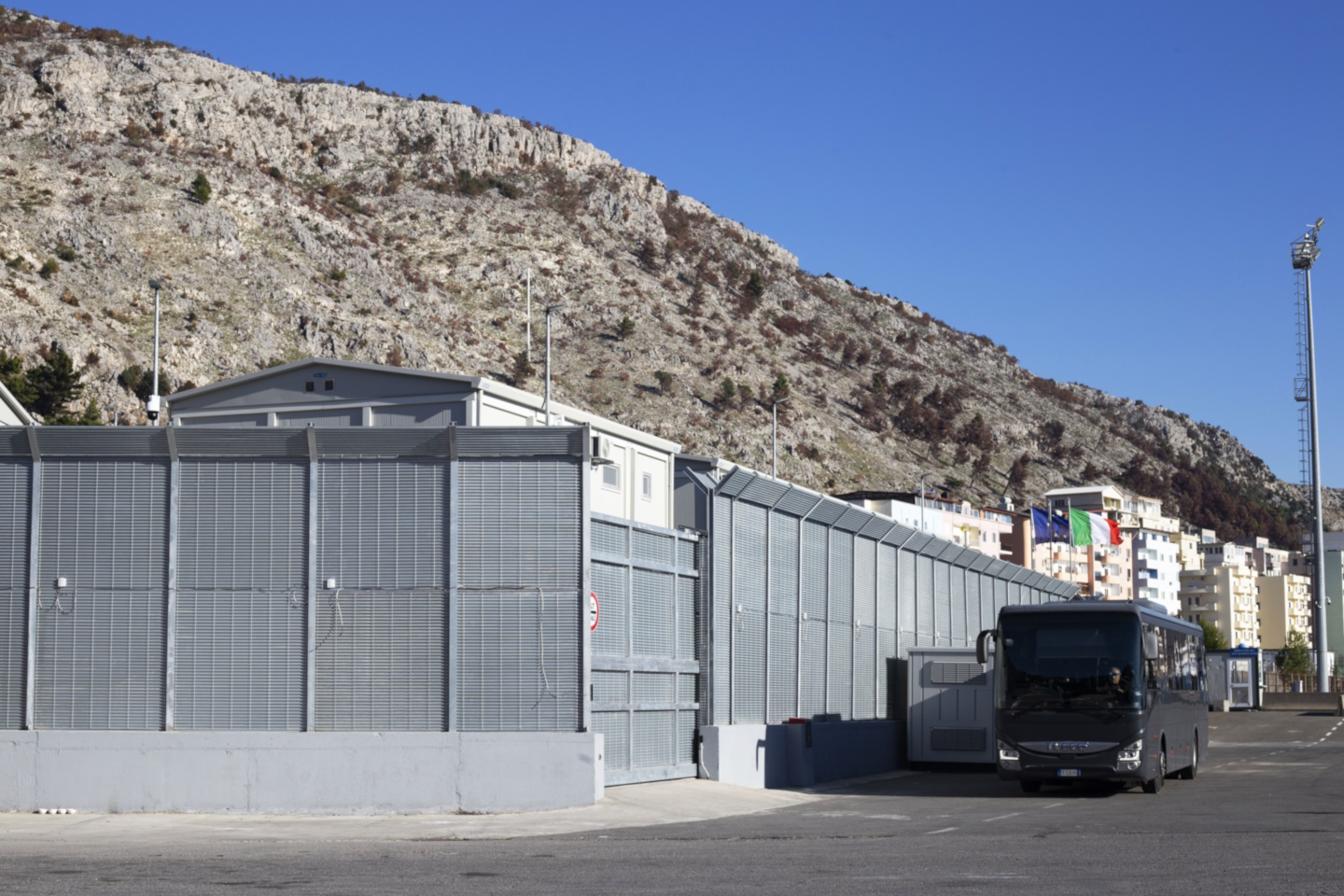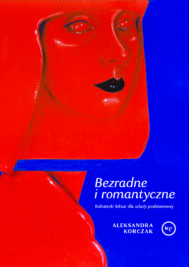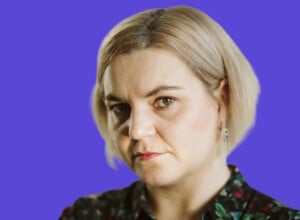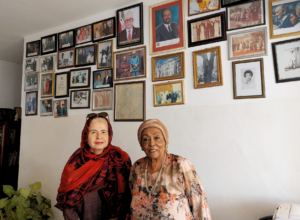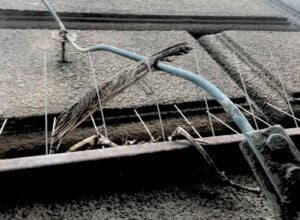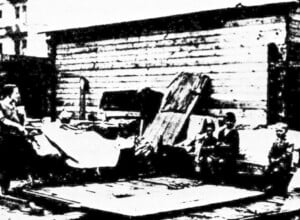Zaczęło się w połowie października 2024 roku. To wtedy okręt przewożący cudzoziemców dotarł do portu w albańskim Shëngjin. Na pokładzie statku włoskiej Straży Granicznej znajdowało się sześciu Egipcjan i dziecięciu obywateli Bangladeszu. Wszyscy płynęli przez Morze Śródziemne w kierunku Lampedusy – pierwszego skrawka Włoch, a zarazem Unii Europejskiej, w drodze z wybrzeża Afryki.
Po pobieżnym ustaleniu ich obywatelstwa i sprawdzeniu kondycji spośród przybyłych wybrano osoby, które mogły ubiegać się o ochronę międzynarodową we Włoszech, zgodnie ze swoim zamiarem. Pozostali mieli przejść przyspieszoną procedurę azylową w ośrodkach, które włoski rząd wybudował na terenie Albanii.
Trafiać tam mają wyłącznie mężczyźni – stanowiący zdecydowaną większość wnioskujących – w dobrej kondycji fizycznej i psychicznej, od razu do Włoch kierowane będą zaś kobiety, dzieci, osoby starsze i ofiary tortur.
Zgodnie z założeniem projektu w ośrodkach recepcyjnych każdego roku ma być rozpatrywane do 36 tys. wniosków o ochronę, czyli maksymalnie 3 tys. miesięcznie. Szefowa włoskiego rządu Giorgia Meloni przekonuje, że migracyjny outsourcing jest konieczny, ponieważ włoski system azylowy jest przeciążony. Nie wspomina przy tym, że liczba migrantów i migrantek, którzy dotarli do Włoch z Afryki Północnej, spadła w 2024 roku o ponad 60 proc. w porównaniu z rokiem 2023 – z prawie 140 tys. do 52 tys.
Tak czy inaczej, plan spotkał się z ciepłym przyjęciem szefowej Komisji Europejskiej Ursuli von der Leyen, która stwierdziła, że „to przykład nieszablonowego myślenia, opartego na sprawiedliwym podziale odpowiedzialności z państwami trzecimi, zgodnie ze zobowiązaniami wynikającymi z prawa UE i prawa międzynarodowego”.
Nikt nie przewidział jednak, że żaden ze wspomnianych Egipcjan i Banglijczyków nie spędzi w albańskich ośrodkach więcej niż kilka dni. To efekt orzeczenia sądu w Rzymie, opartego na wcześniejszym orzeczeniu Trybunału Sprawiedliwości UE, z którego wynika, że ich kraje pochodzenia nie mogą być uznane za bezpieczne, wobec czego poddawanie migrantów przyspieszonej procedurze azylowej w kraju spoza Unii jest sprzeczne z prawem UE.
Mężczyźni zostali wobec tego przewiezieni do Bari w południowych Włoszech. Tak samo skończyła się próba przewiezienia do albańskich ośrodków drugiej grupy obywateli Egiptu i Bangladeszu początkiem listopada. Od tamtej pory działania zostały wstrzymane, ale Meloni nie powiedziała jeszcze ostatniego słowa.
„Nie ma już odwrotu”
Do Shëngjin przyjeżdżam w połowie listopada. Mimo że temperatury są w Albanii wyższe niż w Polsce, ręce kostnieją mi od przenikliwego nadmorskiego wiatru. Na razie ośrodek w miejskim porcie stoi pusty, nie licząc włoskich funkcjonariuszy, którzy strzegą kontenerów odgrodzonych od reszty portu wysokim, stalowym murem. To pierwszy punkt, do którego mają być zwożeni migranci. Tu sprawdzany jest raz jeszcze ich stan zdrowia i potwierdzane są najważniejsze dane osobowe.
Stąd cudzoziemcy mają być transportowani do oddalonego o pół godziny drogi samochodem ośrodka w pobliżu wsi Gjadër. To już ten właściwy, gdzie mogą przebywać do 28 dni, bo tyle ma trwać przyspieszona procedura rozpatrywania wniosków o azyl. Z tego punktu są dwa kierunki – transport z powrotem do Włoch, już z przyznanym statusem uchodźcy, lub deportacja do kraju pochodzenia, jeśli ten będzie chciał ich przyjąć z powrotem. Nieoficjalne założenie jest takie, że migranci zrezygnują z podjęcia drogi do Włoch, jeśli będzie im grozić „wysyłka” do Albanii.
Poza tym Włochy liczą, że większość osób, które trafią do ośrodków w Albanii, po miesiącu zostanie deportowana. Właśnie dlatego mieliby tam trafiać obywatele tzw. krajów bezpiecznych, do których deportacja jest możliwa. Problem w tym, że Włochy za bezpieczne uznają państwa, które wcale bezpiecznymi nie są – przynajmniej nie dla każdego.
W małej, obskurnej portowej tawernie spotykam kilku policjantów i karabinierów, którzy chwilę wcześniej wyszli zza murów ośrodka.
– Wyjeżdżam za kilka dni. Kończy się moja 20-dniowa zmiana, pewnie przyślą kogoś na moje miejsce – mówi jeden z nich. Kilka dni po naszej rozmowie dowiaduję się, że już ponad połowa włoskich funkcjonariuszy wróciła do kraju. W końcu komu opłaca się pilnowanie pustych pomieszczeń?
– A co myślisz o tym projekcie? Może okaże się dla twojego kraju pomocny, w końcu dużo się słyszy, że migranci sprowadzają do Włoch niebezpieczeństwo? – ciągnę policjanta za język. Ten jednak patrzy na mnie zza ciemnych okularów przez chwilę, jakby nie wiedział, o co mi chodzi.
– Gówno prawda. W miastach zawsze jest jakaś przestępczość, z migrantami czy bez – kwituje.
Gdy kończymy rozmowę, tuż przed nami ciężarówka wywozi ostatnie partie gruzu pozostałe po budowie ośrodka. – Projekt ruszył. Nie ma już odwrotu – słyszę od osoby blisko związanej z włoską ambasadą w Tiranie. Giorgia Meloni zbyt wiele poświęciła, by projekt został zrealizowany. Mowa tu nie tylko o własnej reputacji, ale o co najmniej 600 milionach euro, jakie mają zostać zainwestowane w działania centrów recepcyjnych przez kolejne pięć lat.
Deal za korzyści polityczne?
Shëngjin to niewielka miejscowość turystyczna, żyjąca od sezonu do sezonu. W listopadzie budynki i ulice są opustoszałe. Kilku pali w barach jednego papierosa za drugim, małżeństwo wychodzi po niedzielnej mszy. Zaczepiam pojedyncze osoby w lokalach i nadmorskiej promenadzie o to, co myślą na temat tej inwestycji.
Większość nie chce o ośrodkach rozmawiać. Zaprzyjaźniony Albańczyk przekonuje mnie, że ludzie boją się podejmować tematy polityczne w kraju, który wciąż pamięta brutalny komunizm, a dziś rządzony jest de facto autorytarnie przez premiera Ediego Ramę z Socjalistycznej Partii Albanii.
– Jaki z tego niby pożytek dla miasta? Nikt na tych migrantach przecież nie zarobi, a włoscy funkcjonariusze siedzą w hotelu – oburza się grupka trzech młodych mężczyzn w kapturach, których spotykam wieczorem na promenadzie. Każdy z nich wyjeżdża do pracy gdzieś za granicę, podobnie jak niemal połowa z ok. 5 milionów obywateli Albanii, borykającej się z bezrobociem i korupcją. Ktoś inny powtarza krążącą po mediach społecznościowych teorię spiskową, że premier Edi Rama planuje wysiedlić Albańczyków z ich kraju i zastąpić ich Afrykańczykami – niejasne układy polityczne to woda na młyn najdziwniejszych plotek.
Umawiam się na spotkanie z posłem opozycyjnej Demokratycznej Partii Albanii, Agronem Gjekmarkajem, który pochodzi z tych okolic.
– To precedens. Projekt wywołał sporo kontrowersji i dyskusji, a także reakcję ze strony Watykanu, organizacji pozarządowych, albańskiego społeczeństwa i wreszcie nas, czyli opozycji – mówi, gdy spotykamy w restauracji przy jednej ze stacji benzynowych.
Przekonuje, że prawdziwym powodem, dla którego premier Rama zgodził się na ten układ, były oczekiwane korzyści polityczne dla niego samego, choćby kosztem reputacji kraju.
– Jest w tym coś niepokojącego, gdy widzisz ludzi przewożonych do ośrodka w czymś, co wygląda jak więźniarka, chociaż niczym nie zawinili i chcą tylko lepszego życia – stwierdza, opisując w ten sposób transport cudzoziemców z Shëngjin do drugiego ośrodka, tego w pobliżu Gjadër. Jadę tam następnego dnia.
Schludne więzienie
Popękana ulica prowadzi wzdłuż gór pod sam ośrodek. Leży tuż przed wjazdem do Gjadër, wsi liczącej jakieś 700 osób, i wygląda niemal identycznie jak ten w Shëngjin – przynajmniej na tyle, na ile jestem w stanie dostrzec z biegnącego obok szlaku górskiego. Mimo wielokrotnych próśb wysyłanych do włoskiej ambasady nie dostałam możliwości wstępu do środka. Wejścia pilnuje dwóch albańskich funkcjonariuszy, którzy mają być wsparciem dla włoskich karabinierów i policjantów.
O warunkach panujących w pomieszczeniach dowiaduję się od Damiana Boeselagera, niemieckiego europosła z ramienia socjalliberalnej partii Volt Europa, który w listopadzie złożył tam wizytę. – To typowy ośrodek recepcyjny, czyli miasteczko kontenerowe, które ma warunki zbliżone do więziennych. Natomiast w porównaniu do innych ośrodków, które widziałem choćby w Grecji, sprawia wrażenie bardzo schludnego. Trudno się dziwić, bo w końcu nikt tam nie mieszkał – stwierdza.
Ośrodek w Gjadër jest podzielony na trzy sekcje. W pierwszej cudzoziemcy będą czekali na rozpatrzenie wniosków o ochronę. Druga przeznaczona jest dla tych, którzy popełnili przestępstwo na terenie ośrodka, zaś w trzeciej mają czekać na deportację migranci, których wnioski zostały odrzucone.
Światowe organizacje prawnoczłowiecze nie mają wątpliwości, że cały projekt jest eksperymentem prowadzonym kosztem ludzi w drodze. – Doświadczenie pokazuje, że programy azylowe typu offshore nie mogą być wdrażane w sposób zgodny z prawami człowieka i prawem międzynarodowym – stwierdza Judith Sunderland, zastępczyni dyrektora ds. Europy i Azji Środkowej w Human Rights Watch.
Organizacja zwraca też uwagę, że to, w jaki sposób Włochy zagwarantują sprawiedliwą procedurę azylową i kontrolę sposobu detencji w innym państwie, „pozostaje tajemnicą”. Na miejscu dowiaduję się, że uprawnienia do monitorowania sytuacji migrantów w ośrodkach ma otrzymać albańska rzeczniczka praw obywatelskich Erinda Ballanca. Jak dotąd jeszcze centrów nie wizytowała.
Z kolei posłowie i posłanki partii Volt Europa wskazują, że projekt nie tylko łamie prawa człowieka, ale jest także pełen niejasności co do planów finansowania ośrodków. Nie było też przetargu na wykonawcę wśród firm budowlanych (Włochy wprowadziły specjalną ustawę, by obejść europejską dyrektywę przetargową). Giorgia Meloni i Edi Rama zdają się jednak uważać, że cel uświęca środki.
Pracuj albo emigruj
Po kilku minutach jazdy samochodem docieram do Gjadër. Na głównej ulicy znajdują się dwa sklepy, w których można kupić warzywa, przekąski, zabawki, drobną ceramikę, mydło, papierosy. Poza tym jest jeszcze kilka barów-kafejek, opuszczona sala bilardowa i sierociniec prowadzony przez siostry zakonne. W niedzielę koło południa mimo słonecznej pogody nie ma tu prawie nikogo, tylko kilka starszych osób spieszy na mszę do niewielkiego kościoła. Jeszcze miesiąc temu, przekonują mieszkańcy, miastem interesowało się wielu dziennikarzy. Dziś zainteresowanie przygasło.
– Wszyscy młodzi wyjechali za pracą, głównie do Włoch, my tu zostaliśmy sami – słyszę od emerytek zbierających oliwki i pomarańcze z ogrodowych drzew. Emigracja za chlebem to popularne rozwiązanie w kraju z wysokim bezrobociem.
W Gjadër dowiaduję się też, że Włochy zaoferowały kilka miejsc pracy dla lokalnej społeczności przy budowie i utrzymaniu czystości w ośrodku. Wynagrodzenie jest znacznie wyższe niż głodowe emerytury Albańczyków i Albanek, dlatego z ich punktu widzenia lepiej byłoby, gdyby inwestycja ruszyła, nawet jeśli zyskają na tym tylko pojedyncze osoby.
– Z początku ludzie bali się sprowadzania tu obcych, ale z czasem zrozumieli, że ośrodek to dla nich szansa na zarobek – mówi mi Aleksander Preka, sołtys Gjadër. Dodaje, że przy okazji budowy ambasador Włoch obiecał także rozwój lokalnej infrastruktury. Na razie jednak nie widać po niej śladu.
Mimo że pozytywnie nastawiony do projektu, Preka zwraca uwagę, że migranci nie powinni być trzymani w zamknięciu. – To przecież nie są kryminaliści, tylko osoby, które uciekają przed zagrożeniem. Gdybym miał na to wpływ, na pewno nie powstałoby to wysokie ogrodzenie – wskazuje.
Około południa zagaduję w kafejce trzech mężczyzn w wieku około 50 lat. Jeden z nich jest już mocno pijany, drugi niechętny do rozmowy. Tylko jeden ma coś do powiedzenia na temat ośrodka – nazywa się Rrok Rroku i jest emerytowanym wójtem gminy.
Potwierdza to, co wcześniej powiedział Aleksander Preka – początkowa niechęć mieszkańców przerodziła się w poparcie, gdy niektórzy z nich dostali w centrum pracę.
– Nie mam wątpliwości, że projekt jest używany do prowadzenia polityki. Migracje są problemem dla całej Europy, część państw buduje wysokie mury, stawia ogrodzenia. Dlatego nie dziwi mnie, że niektóre z nich zainteresowały się podobnym rozwiązaniem, które zastosowała Meloni – mówi były wójt i dodaje:
– Skoro przez kolejne pięć lat ten kawałek naszej ziemi będzie pod włoskim zarządem, to tak naprawdę jako Albańczycy nie mamy z tym ośrodkiem nic wspólnego. Jednak patrząc z perspektywy Gjadër, liczę, że projekt wypali.
– A jeśli nie? – dopytuję.
– Cóż, będzie to oznaczało, że kolejni mieszkańcy wyemigrują do Włoch za pracą, tak jak robią to przecież od dawna.
**
Materiał powstał dzięki grantowi Balkan Investigative Reporting Network. Dziękuję za pomoc na miejscu Vladimirowi Karajowi.

 Wspieraj
Wspieraj 

 Wspieraj
Wspieraj  Wydawnictwo
Wydawnictwo 
 Zaloguj się
Zaloguj się 
